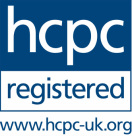
My name is Dr Matthew Brown. I am a Consultant Clinical Psychologist offering specialist evidence-based psychological therapies in London.
Since 2001 I have worked with people experiencing psychological distress and mental health difficulties, including adolescents, adults and older adults. I qualified as a clinical psychologist in 2009 at University College London. I provide private psychological assessment and therapy, in addition to clinical supervision to other healthcare professionals, alongside my NHS role at University College London Hospital, where I work as a specialist consultant clinical psychologist in oncology. I have also worked extensively in general mental health and physical health settings within the NHS.
As part of my Clinical Psychology training, I have specialist training in Cognitive Behavioural Therapy (CBT) and have also received formal training and experienced in Acceptance and Commitment Therapy (ACT), Dialectical Behaviour Therapy (DBT) and Compassion Focused Therapy (CFT).
I am registered with the Health and Care Professions Council (HCPC).
I pride myself on providing a safe therapeutic space and adhere to strict standards of confidentiality.
Why seek therapy from a Clinical Psychologist?
The profession of Clinical Psychology aims to reduce psychological distress and enhance psychological wellbeing. We offer direct assessment and therapy, drawing on a vast body of research, to help people manage distress and promote wellbeing.
In the UK Clinical Psychologists are trained to Doctorate level and it takes many years of training to attain Chartered Status. We learn about many theories and models of psychological therapy, gaining a substantial amount of practical experience along the way. We are then able to draw on a vast range of therapy options to offer unique packages of therapy to meet each individual's needs. As a highly trained psychologist I provide therapies often cited in the guidelines of the National Institute of Clinical Excellence (NICE). Clinical Psychologists are required to continue their professional development throughout their career to maintain their Chartered Status, to stay up to date and to ensure continued quality of service.
Since 2001 I have worked with people experiencing psychological distress and mental health difficulties, including adolescents, adults and older adults. I qualified as a clinical psychologist in 2009 at University College London. I provide private psychological assessment and therapy, in addition to clinical supervision to other healthcare professionals, alongside my NHS role at University College London Hospital, where I work as a specialist consultant clinical psychologist in oncology. I have also worked extensively in general mental health and physical health settings within the NHS.
As part of my Clinical Psychology training, I have specialist training in Cognitive Behavioural Therapy (CBT) and have also received formal training and experienced in Acceptance and Commitment Therapy (ACT), Dialectical Behaviour Therapy (DBT) and Compassion Focused Therapy (CFT).
I am registered with the Health and Care Professions Council (HCPC).
I pride myself on providing a safe therapeutic space and adhere to strict standards of confidentiality.
Why seek therapy from a Clinical Psychologist?
The profession of Clinical Psychology aims to reduce psychological distress and enhance psychological wellbeing. We offer direct assessment and therapy, drawing on a vast body of research, to help people manage distress and promote wellbeing.
In the UK Clinical Psychologists are trained to Doctorate level and it takes many years of training to attain Chartered Status. We learn about many theories and models of psychological therapy, gaining a substantial amount of practical experience along the way. We are then able to draw on a vast range of therapy options to offer unique packages of therapy to meet each individual's needs. As a highly trained psychologist I provide therapies often cited in the guidelines of the National Institute of Clinical Excellence (NICE). Clinical Psychologists are required to continue their professional development throughout their career to maintain their Chartered Status, to stay up to date and to ensure continued quality of service.

